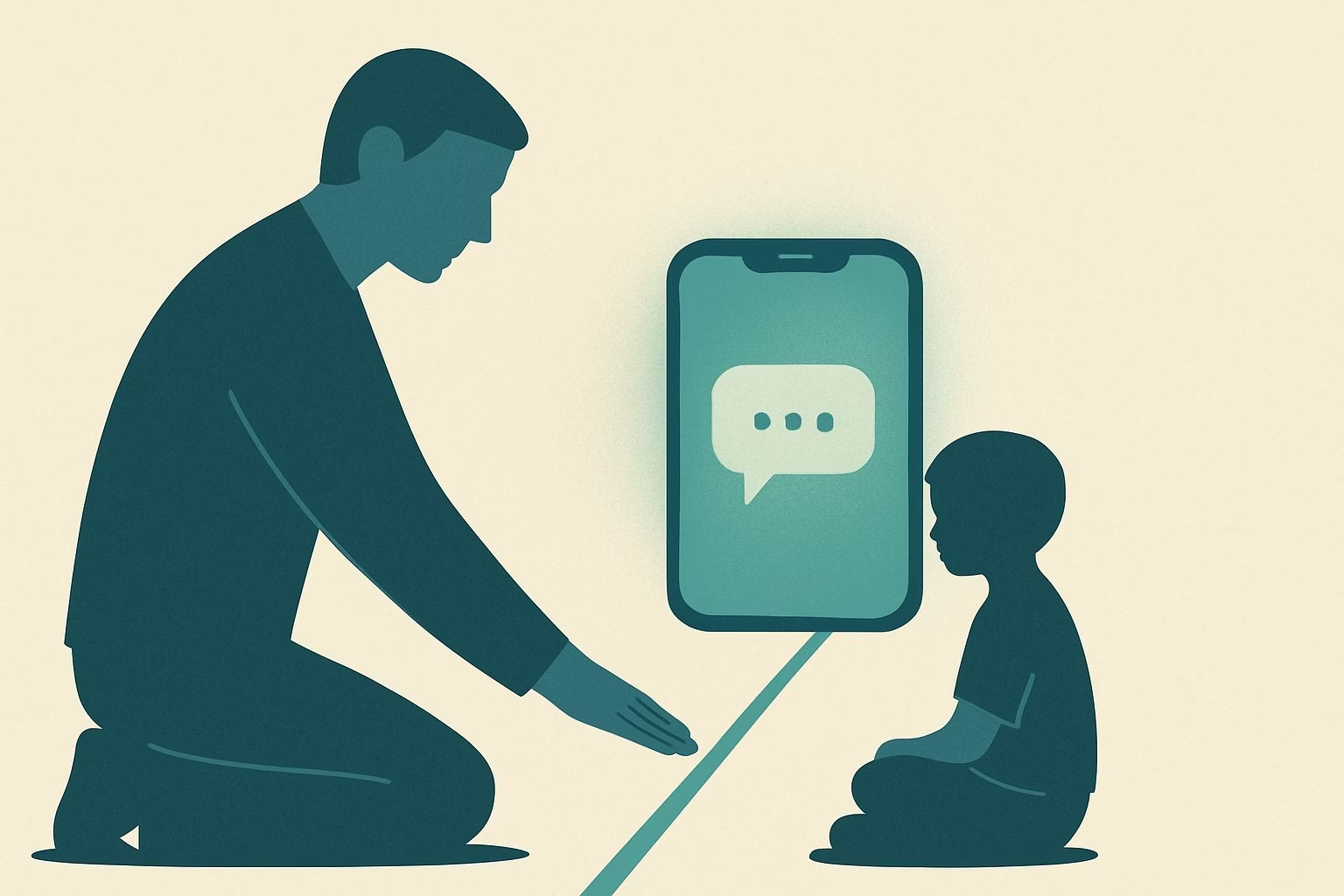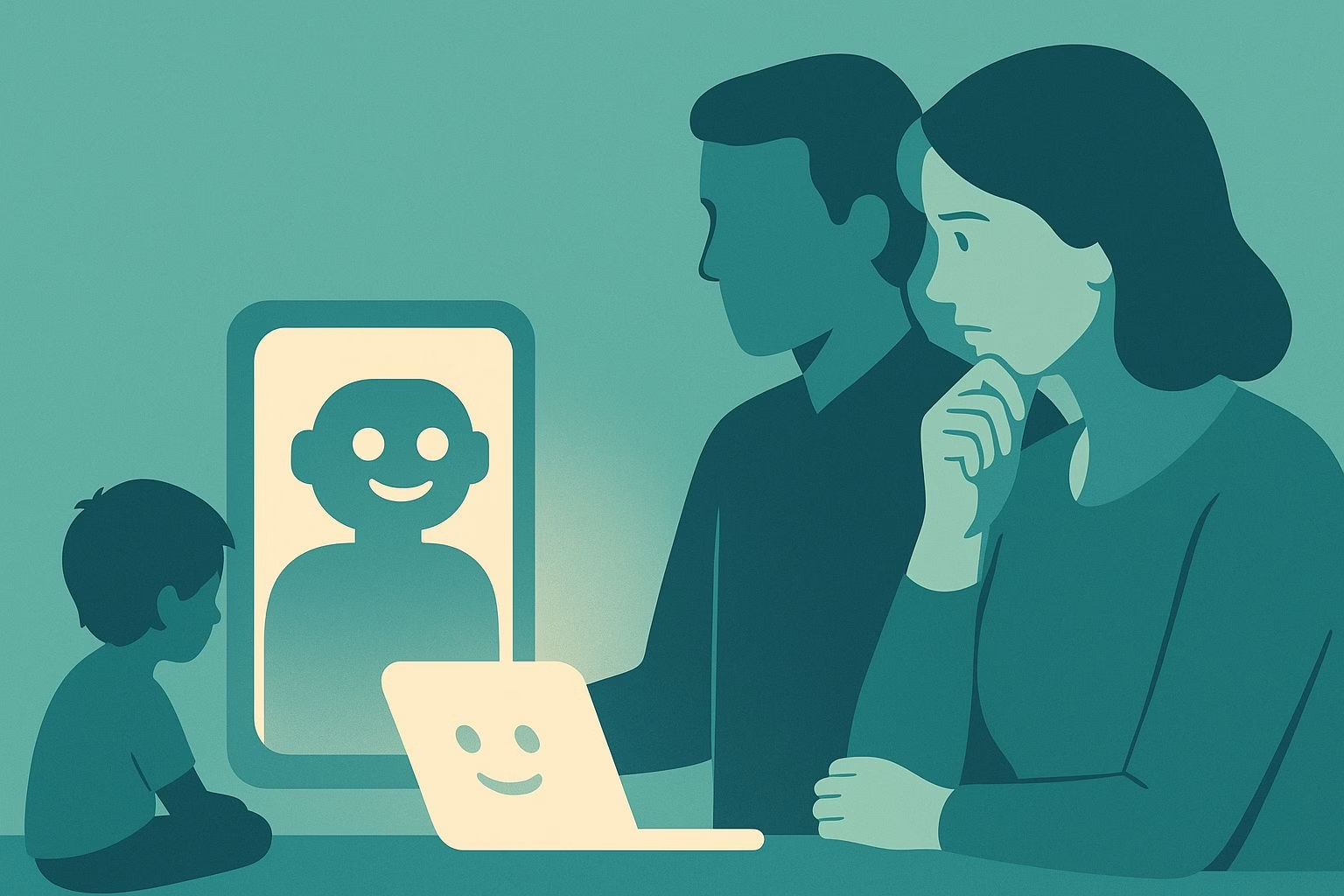Character AI’s Ban on Minors Isn’t Cruel, It’s Common Sense
• Limiting minors on Character AI protects emotional development, not moral purity.
• Chatbots simulate empathy but erode real social skills when used too early.
• The real issue isn’t technology, it’s parenting and the absence of real-world interaction.
• AI should support human growth, not replace human experience.
The loudest defense of Character AI’s age restriction isn’t coming from “boomers.” It’s from people barely in their twenties who remember what it was like to grow up without constant digital validation.
They aren’t calling for censorship. They’re calling for balance.
Kids today are living through an experiment no one consented to: endless screen time, dopamine loops, and simulated affection.
When every emotional need can be met by a chatbot that never says no, how are they supposed to learn patience, empathy, or even rejection?
Adults aren’t being prudish for saying enough is enough. They’re saying it because they’ve seen what hyper-connected loneliness does to the mind.
They’ve seen friends burn out on fake intimacy. They’ve watched classrooms full of kids unable to hold eye contact or endure silence.
The argument isn’t anti-AI. It’s anti-addiction. You can use C.AI or any other chatbot as an adult and know when to unplug. Kids can’t.
That’s the problem.
Real growth still happens offline. It happens in awkward conversations, in boredom, in failure. AI can simulate connection, but it can’t replace the messy, beautiful discomfort that shapes character.
Limiting Minors on Character AI Is the Right Move

It’s easy to label this debate as moral panic. But the truth is, Character AI was never meant to raise kids.
It’s an adult tool masquerading as a harmless chat app, and it’s slowly rewiring how young people think about connection.
When a 14-year-old spends hours chatting with a bot that never disagrees, that’s not creativity, it’s conditioning.
It trains the brain to expect relationships without friction. There’s no tone of voice to misread, no awkward silence to fill, no real emotion to manage.
Children need emotional friction. They need to feel misunderstood, challenged, and occasionally embarrassed.
Those moments teach boundaries and empathy, two things no algorithm can replicate. Removing that struggle in the name of comfort creates adults who crave control but collapse at the first sign of resistance.
Even the most sympathetic adults in that Reddit thread agreed: the app isn’t evil, but the access is. Letting kids roleplay affection with unfiltered AI isn’t teaching connection. It’s teaching dependence.
Balance starts with boundaries. Kids can’t be expected to set those themselves.
What Parents and Developers Keep Getting Wrong

Parents keep acting like AI is the enemy. Developers act like they’re just building tools. Both are wrong.
The real danger lies in pretending AI isn’t emotionally manipulative by design.
Every reply from a chatbot is a microdose of validation. It’s engineered to reward you for returning. Adults struggle with that loop, so how can a 12-year-old possibly handle it?
The issue isn’t whether AI can “harm” kids. The issue is that it changes what kids expect from people.
When a child spends their formative years being adored by a digital character that bends to their every whim, real relationships will feel messy, disappointing, and unequal. That’s not progress. That’s emotional distortion.
If developers like Character AI want credibility, they should stop acting like they’re offering companionship and start saying what it really is: simulation therapy without supervision.
Until that changes, age limits aren’t just reasonable, they’re overdue.
The “Touch Grass” Generation Has a Point
Every older user saying “go outside” isn’t being smug; they’re remembering when boredom was normal.
When you had to invent fun instead of receiving it through a glowing rectangle. Kids today are overstimulated to the point of emotional paralysis.
They don’t know what silence feels like. Every idle second is filled with dopamine from TikTok, YouTube, or chatbots like Character AI.
The result isn’t creativity. It’s anxiety. And when that anxiety spikes, they return to the very tech that caused it in the first place.
The fix isn’t deleting every app. It’s reintroducing boredom as a life skill. When you sit with boredom, your brain starts to think again. You draw. You write. You imagine. You build something that’s yours.
That’s how creativity, the real kind, is born.
Kids don’t need another dopamine machine. They need the space to be uncomfortable again.
Real Social Skills Can’t Be Learned from a Screen
AI fans love to argue that chatbots can help shy or neurodivergent kids practice social interaction. That sounds compassionate, but it’s dangerously naive.
Practicing empathy on a machine that never feels anything isn’t practice; it’s roleplay.
Human conversation is messy. It involves tone, timing, and discomfort. It’s full of misunderstandings that force growth. AI interaction removes all that.
You don’t have to read emotion or deal with rejection because the bot is designed to please you.
That’s not communication. That’s control.
If a generation learns to “connect” only in spaces where they can delete awkwardness with a click, we’re raising kids who fear authenticity. They’ll crave safety so much they’ll never risk being real.
It’s time adults stopped apologizing for protecting them from that. Real connection has to hurt sometimes. That’s what makes it real.
The Real Problem Isn’t AI, It’s Parenting
Every time Character AI tightens restrictions, parents rush online to complain about “overreach.” But this isn’t about tech control. It’s about abdicated responsibility.
If a child’s best friend is a chatbot, something has already gone wrong at home. You can’t outsource emotional development to a machine. That’s not harsh, it’s reality.
Kids turn to AI because they’re lonely, ignored, or overstimulated with nothing meaningful to ground them.
Banning AI doesn’t fix that loneliness. Parenting does. The real fix starts with dinner-table conversations, curfews, and screen-free weekends. It starts with adults who say “no” and mean it.
The truth no one wants to admit?
Kids don’t need more freedom online. They need adults willing to be the bad guy when necessary.
Why This Debate Matters Beyond Character AI
This isn’t just about one app. It’s about a generation learning to mistake simulation for substance.
The “AI companion” boom is teaching people to outsource intimacy, and if that starts too early, it rewires the very definition of love, trust, and empathy.
We’ve built a digital playground that rewards fantasy over reality. And now, when someone pulls the plug, we call it oppression. That’s insane!
Kids have their whole lives to be online. Right now, they should be learning how to live without it.
AI isn’t going anywhere. But neither is the need for real connection. The sooner we stop confusing the two, the better off this generation will be.
RoboRhythms.com has always argued that AI should enhance humanity, not replace it. That starts with keeping children grounded in reality, where mistakes, conversations, and connections actually matter.
